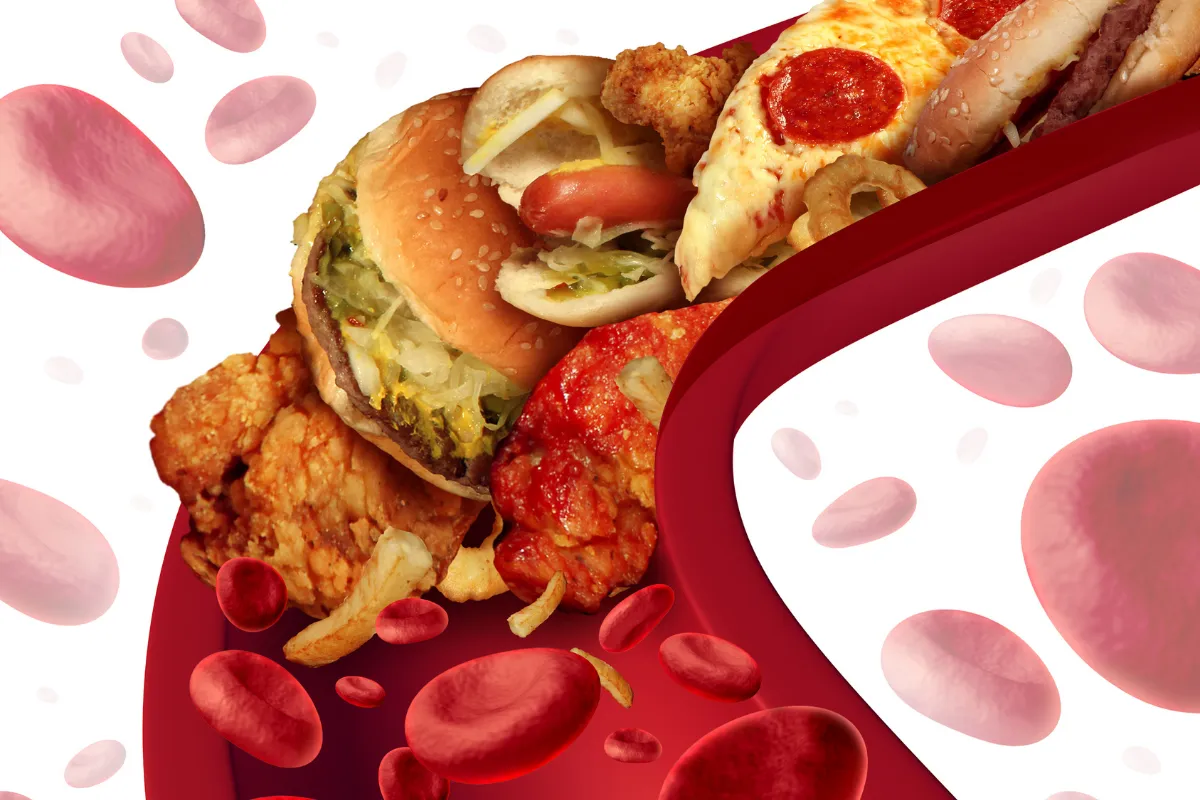High Cholesterol Treatment Options: Finding the Right Fit in Spring
Feeling overwhelmed by your high cholesterol diagnosis?
You’re not alone.
Many people struggle to understand the different treatment options available.
Finding the right fit can feel like navigating a maze.
Let’s explore the various approaches to managing high cholesterol, so you can make informed decisions and take control of your heart health.
Understanding High Cholesterol
High cholesterol often presents no symptoms, making regular check-ups crucial.
Our preventive screenings near Louetta Rd can help detect it early.
What is Cholesterol?
Cholesterol is a waxy substance found in your blood.
Your body needs it to build healthy cells, but high levels can increase your risk of heart disease.
Understanding the different types of cholesterol is important.
- LDL (Low-Density Lipoprotein): Often called “bad” cholesterol, as high levels can lead to plaque buildup in your arteries.
- HDL (High-Density Lipoprotein): Known as “good” cholesterol, as it helps remove LDL cholesterol from your arteries.
- Triglycerides: Another type of fat in your blood. High levels can also increase your risk of heart disease.
Lifestyle Changes for Lowering Cholesterol
Often, the first line of defense against high cholesterol involves lifestyle modifications.

Dietary Adjustments
- Reduce Saturated and Trans Fats: These fats can raise your LDL cholesterol. Focus on lean meats, poultry without skin, and low-fat dairy products.
- Increase Soluble Fiber: Soluble fiber can help lower LDL cholesterol. Good sources include oats, beans, apples, and citrus fruits.
- Eat Heart-Healthy Fats: Unsaturated fats, such as those found in olive oil, avocados, and nuts, can help improve your cholesterol levels.
- Consider Plant Sterols/Stanols: These substances can help block the absorption of cholesterol in your body. They are often added to foods like margarine and yogurt.
Exercise and Weight Management
- Regular Physical Activity: Aim for at least 30 minutes of moderate-intensity exercise most days of the week. This can help lower LDL cholesterol and raise HDL cholesterol. Check out our weight loss management program for personalized guidance.
- Maintain a Healthy Weight: Losing even a small amount of weight can improve your cholesterol levels.
Smoking Cessation
Quitting smoking can significantly improve your HDL cholesterol levels.
Dr. A Patient Care offers smoking cessation resources and support near Louetta.
Medications for High Cholesterol
If lifestyle changes alone aren’t enough to lower your cholesterol, your doctor may recommend medication.
Common Cholesterol-Lowering Medications
- Statins: These are the most commonly prescribed medications for high cholesterol. They work by blocking a substance your liver uses to make cholesterol.
- Bile Acid Sequestrants: These medications bind to bile acids in your intestine, which helps lower LDL cholesterol.
- Cholesterol Absorption Inhibitors: These medications help reduce the absorption of cholesterol from your diet.
- PCSK9 Inhibitors: These newer medications can significantly lower LDL cholesterol levels, especially for people with familial hypercholesterolemia or those who cannot tolerate statins.
- Fibrates: These medications are primarily used to lower triglyceride levels and can also raise HDL cholesterol.
- Niacin: Niacin can lower LDL cholesterol and triglycerides and raise HDL cholesterol. However, it can also cause side effects.
Comparing Cholesterol Medications
| Medication Class | Mechanism of Action | Primary Effect | Common Side Effects |
|---|---|---|---|
| Statins | Block cholesterol production in the liver | Lower LDL cholesterol | Muscle pain, liver problems |
| Bile Acid Sequestrants | Bind to bile acids in the intestine | Lower LDL cholesterol | Constipation, bloating |
| Cholesterol Absorption Inhibitors | Reduce cholesterol absorption from the diet | Lower LDL cholesterol | Stomach pain, diarrhea |
| PCSK9 Inhibitors | Block PCSK9 protein, increasing LDL receptors in the liver | Significantly lower LDL cholesterol | Injection site reactions, flu-like symptoms |
| Fibrates | Increase breakdown of triglycerides | Lower triglycerides, raise HDL cholesterol | Stomach upset, muscle pain |
| Niacin | Reduces the liver’s production of LDL and VLDL cholesterol | Lower LDL cholesterol and triglycerides, raise HDL cholesterol | Flushing, itching, stomach upset |
Working with Dr. A Patient Care in Spring, TX
At Dr. A Patient Care, located at 5523 Louetta Rd STE C, Spring, TX 77379, we understand that managing high cholesterol can be complex.
We offer comprehensive care, including lifestyle counseling, medication management, and regular monitoring.
Our team can help you develop a personalized treatment plan that meets your individual needs.
Considering your options?
We can help!
Call us at 346-550-8220 or book a consultation to get started.

Additional Considerations
Underlying Conditions
Sometimes, high cholesterol can be related to other medical conditions, such as diabetes or kidney disease.
Proper management of these conditions is essential. We offer diabetes care tips for managing blood sugar levels near Klein.
Supplements and Alternative Therapies
Some people explore supplements and alternative therapies to help lower their cholesterol.
Always talk to your doctor before trying any new supplements, as they can interact with medications or have side effects.
Frequently Asked Questions (FAQs)
What are the risks of untreated high cholesterol?
Untreated high cholesterol can lead to serious health problems, including heart disease, stroke, and peripheral artery disease.
Plaque buildup in your arteries can narrow them, reducing blood flow to your heart and brain.
This can cause chest pain (angina), heart attack, or stroke.
How often should I get my cholesterol checked?
Most adults should have their cholesterol checked at least every 4 to 6 years.
If you have risk factors for heart disease, such as a family history of high cholesterol, you may need to be checked more often.
We offer convenient lab testing options in Spring, Texas.
Can children have high cholesterol?
Yes, children can have high cholesterol, especially if they have a family history of high cholesterol or heart disease.
The American Academy of Pediatrics recommends that all children be screened for high cholesterol between the ages of 9 and 11, and again between the ages of 17 and 21.
We also provide pediatric checkups, keeping your child healthy near Klein.
The journey to managing your cholesterol effectively is a personal one.
By understanding your risk factors, exploring the various high cholesterol treatment options, and working closely with our team at Dr. A Patient Care, you can find the right fit for a healthier heart in Spring and beyond.


